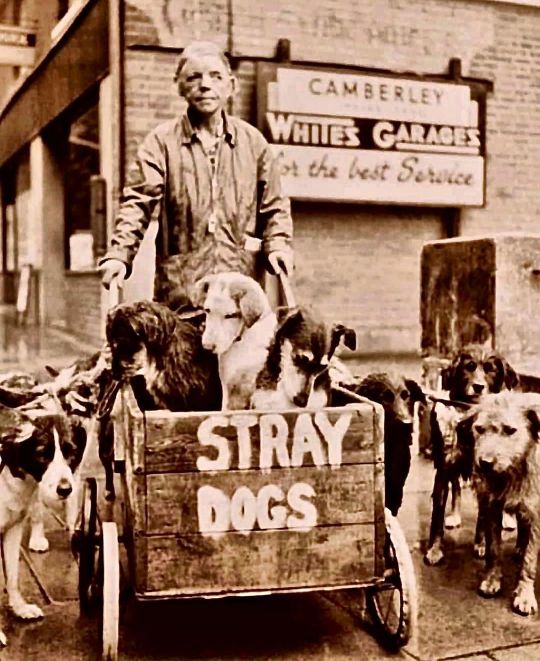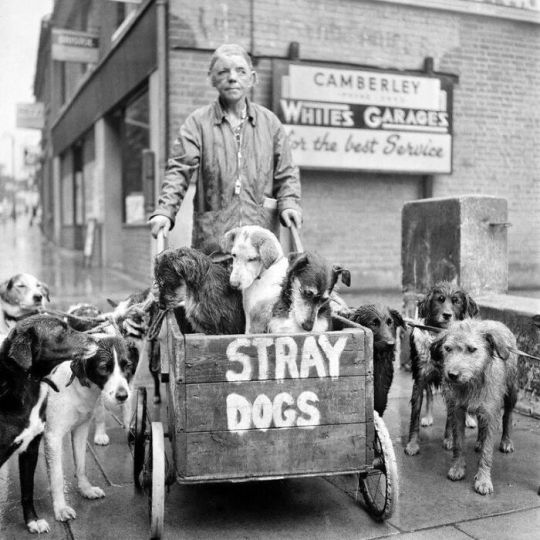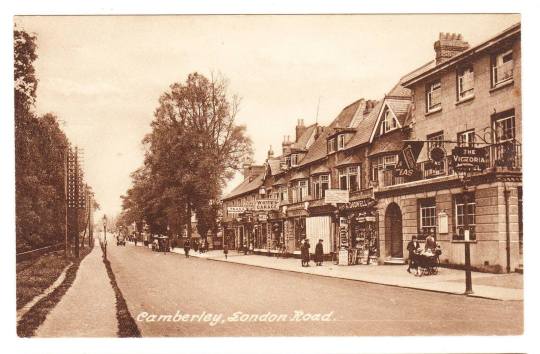#camberley
Text
You can’t tell me what I’m doing wrong… : 1976 : And Mother Makes Four, Camberley
“Why are you choosing a university so far away?” aunt Sheila demanded of me. “You should commute from home to Guildford so you can help your mum.”
I was seething. It was the first time we had spoken in years and THIS was her ‘advice’ to me? How dare she! It was three years since my middle-aged father had walked out on our family to shack up with a runaway teenage bride. Following his departure, he had apparently visited Sheila and poisoned her mind against her younger sister, my mother, so that the pair exchanged not one word for decades thereafter. Just when my mother had needed sisterly support to survive a difficult breakup and resultant hardship, Sheila had frozen her out. But she still felt able to tell me how to run my life?
There had been a time, between 1967 and 1969, when I had walked round to Sheila’s home every afternoon after school. My parents had moved house, now too far away for me to simply catch a bus, so I would wait at Sheila’s between four and six o’clock until one of them arrived after work to pick me up. My lovely older cousin Keith would play me his Jimi Hendrix records on their living room stereogram until the arrival of his father from work at Solartron, a defence contractor in Farnborough. Suddenly, us children would be quickly ushered out into the garden (“Quick! I can hear his car,” Sheila would shout), or the kitchen if it was raining, because taciturn uncle Fred apparently required domestic solitude without the distraction of his three children (plus me). Even as a nine-year old, I viewed this household’s behaviour as bizarrely disciplinarian.
According to my mother, in the early 1950’s her father had forced a pregnant Sheila to marry Fred. That rift evidently never healed. Even by the 1970’s, when the couple and their children gathered with us at our grandparents on family occasions such as Christmas, Fred remained sat in his parked car on the street outside for hours, like a vampire uninvited to cross the threshold. A dozen of us relatives would be sat scoffing our dinner around my grandparents’ old wooden dining table, extended once a year by me pulling out its two extra leaves, while Fred was abandoned outside literally in the cold. It was a family feud that had started before I was born and which everybody since had politely ignored and refused to explain. Ours was a family at (passive aggressive) war.
How dare Sheila lecture me about my education choice! I had already been impacted by my parents having selfishly selected a secondary school at the opposite end of the county, saddling me for seven years with a horrendous commute that took at least two hours daily to journey home. I had been denied a voice in that decision and paid the price, marooned so far from my school that I had not one local friend. Now this was MY time to determine MY future. Besides, nobody in our family had gained a school certificate, let alone attended university. Sheila worked as a ‘dinner lady’ at my former primary school. Upon marriage, Sheila and Fred were offered a post-war semi-detached council house on the Old Dean Estate where they remained their entire lives. I wanted more for my future than that.
When Sheila told me I should stay home to ‘help’ my mother, she had no idea what that ‘help’ had entailed during recent years or the toll it had already taken on my teenage life. As the eldest of three children in a newly single-parent household, I had to be the first to rise every weekday morning and the last to go to bed, usually after midnight. On top of a lengthy school commute requiring bus and train connections, teachers gave two homework subjects to fulfil every weekday night. My mother held down a full-time day job and an evening office cleaning job, requiring me to babysit my two siblings after school, as well as undertake ‘parental’ duties such as teaching my baby sister to read and write, along with hours of play on our living room floor. I thoroughly enjoyed providing her with the attentions that my parents had failed to offer me as a child, but my homework had to remain untouched until she fell asleep. (Daytimes during term time, while my brother and I attended school, our retired maternal grandparents generously looked after my sister at their house.)
The other aspect of my ‘help’ was the task of managing my mother’s financial and legal problems. When household bills and reminders arrived by post, she refused to acknowledge them, preferring to stuff them unopened into a drawer. To her, out of sight literally meant out of mind. I had to organise all her paperwork into folders, challenge incorrect charges, negotiate overdue payments and stave off court appearances and bailiffs. I corresponded with the government’s Inland Revenue tax authority, claimed benefits to which I discovered low-income families were entitled and visited the Post Office fortnightly to cash the ’Family Allowance’ voucher book. The volume of correspondence meant I soon became adept at forging my mother’s signature on letters and forms I prepared.
At the same time, I had to tackle the fallout from my parents’ separation and subsequent divorce. Without consulting me, my mother stupidly had decided, for the division of the couple’s assets, to appoint a local solicitor who had previously been used by my father in his erstwhile property business. The outcome was predictably disastrous. The court awarded her significantly less than half the value of the family home the couple had built themselves brick-by-brick in the mid-1960’s, along with no interest in her husband’s self-employed business in which she had undertaken all the bookkeeping for decades. It rested with me to sit in libraries, searching through legal texts until I could prove her solicitor had failed to adequately represent my mother’s interest. I then made after-school appointments with a brace of legal practices nearby, meeting each puzzled solicitor in my bottle green blazer, until I found one who was prepared to initiate action against a fellow lawyer for breach of Law Society rules.
This was the ‘help’ I had been providing my mother the last three years. Although aunt Sheila had been invisible during that time, her eldest daughter Lynn had volunteered to be fairy godmother to me and my siblings, virtually living at our house, cooking meals and looking after us while our mother worked. I had recently been forced into my first ill-fitting suit to attend her church marriage to a salesman for ‘Smith’s Crisps’ (proud of his company car!). Having no children and no longer working, Lynn became the sensible adult sister our hard-up family had never had and made an immense difference by keeping us alive and together during those difficult times. Her invaluable contribution during our hours of need has never been forgotten.
Aunt Sheila had failed to understand that my reason for going away to university was to reduce the burden on my mother’s precarious finances. At the moment, her earnings were having to pay for my upkeep. My father had been ordered by the court to provide maintenance payments for his children but he was forever in massive arrears. Another of my jobs was to phone Farnham County Court once a month (which necessitated arriving late for school) to remind its clerk that my father’s payments were months’ behind and he needed to be threatened. It was a fruitless task. Worse, on my sixteenth birthday, my cruel father had petitioned the court to reduce my maintenance payments to £1 per annum on the grounds that I should take a job. The stupid court agreed, oblivious of my goal to obtain the education my parents had never had.
I had already made attempts to reduce the financial burden. The local council was now paying for my termly railway season ticket to travel to school (but not for the buses). My mother had always prepared sandwiches for me to take in a Tupperware box for my lunch. To cut this cost, I applied for free school lunches, something I had never eaten before. Eventually the school agreed, I entered the dining room for the first time but the staff forbade me to sit on the benches with my classmates. Instead, I was ordered to sit at a tiny table in the corner of the room with three other boys from lower years (out of a school of 300) who were similarly entitled to ‘free school meals.’ I argued that this policy was discriminatory against us ‘poor’ students. I was told where to go. That became my first and last school dinner. I had to return to taking sandwiches.
Attending university away from home meant that I would receive a ‘full grant’ from Surrey County Council that included my costs of accommodation and travel there and back each term. I realised how expensive living costs would be in London so I had to rule out applying to universities there. That left plenty of institutions across the rest of the country. There would be downsides to moving away. I knew I would miss my family terribly, particularly my little sister whom I had looked after from a baby to become a smart, lively four-year old. There had been a time earlier in her development when she had invented her own non-English words for everything and my presence had been required by our family to ‘translate’ what she meant. My mother had even taken her to the doctor, fearing a speech problem, but she eventually grew out of that habit.
Speaking to me the way she had, aunt Sheila appeared oblivious to our family issues. She was equally oblivious to the fact that universities had to choose YOU, not the other way around. To me, at that time she seemed to inhabit a safe suburban bubble. Whereas, since my father’s departure, our family was being tossed around by circumstance, never certain of what further calamity might arrive around the corner. I could not explain all this to Sheila. I was livid with what she had said but I just walked away. Despite me having had to assume domestic responsibilities beyond my teenage years, she had chosen to address me in such a condescending adult tone. Why did she seem in thrall to my dreadful father who was so eager to make life as difficult as possible for his former family? I never understood.
Once I had completed my first term at university, I bought a Kenwood food mixer for my mother for Christmas, to replace the broken one she had been gifted in the 1950’s and treasured. As a small child, she would offer me its ‘K’ shaped mixing element to lick off the excess cake mix. This was the most expensive present I had given her, having saved up through miserliness with my initial student grant. I was pleased to be contributing financially to our household for the first time, rather than being a financial burden. Now, at the end of each term, I would arrive at my mother’s home and have to spend the first few days answering all the bills, demands and legal threats she had ignored and hidden away during previous months. Somebody had to do it. Sometimes it felt as if my life might never be my own.
These days, on the rare occasion I hear the brilliant number thirteen pop chart hit ‘Captain of Your Ship’ by ‘Reparata & The Delrons’, I am transported back to 1968 when I would sing along with the kitchen radio tuned to ‘BBC Radio One’ in Sheila’s house after school. Good times never seemed so good.
0 notes
Text
Looking for #pressurecare & #adaptiveclothing ?
#shopnow > www.medoriscare.com
#Stockport#Manchester#Chatham#Arlington#Lillington#Langley#Kitchener#London#WorcesterPark#Dublin#Maidstone#Grimsby#Pinner#Camberley#SouthamptonFC#Kent#Croydon#Halstead#Exeter
0 notes
Text
Help is at hand for carers at info fairs held across Surrey
All’s fair: Action For Carers Surrey is staging nine info events over the next couple of weeks
Action for Carers Surrey are running information fairs at its hubs through November in the run-up to Carers’ Rights Day on November 23.
Representatives from the charity, which supports unpaid carers, will be joined by other organisations and statutory bodies to offer help and advice.
There will be a…

View On WordPress
#Action for Carers Surrey#Addlestone#Camberley#Carers#Caterham#Cranleigh#Croydon Carers Support Centre#Epsom#Guildford#Horley#Leatherhead#Surrey#Woking
0 notes
Text
The Obelisk, Camberley, Surrey
In the town of Camberley a truncated tower stands on a hilltop surrounded by trees. This is the surviving remnant of an elegant tower, built by John Norris, which stood on the open country known as Bagshot Heath. It has been known since its earliest days as ‘The Obelisk’, for in the 18th century the term was sometimes used to describe any tall, tapering structure. Although only a sorry stump…

View On WordPress
#Bagshot Heath#Camberley#Camberley Obelisk#Dashwood#Edward Henry Clode Braddon)#Hawley House#John Norris#John Palmer Brabazon#Norris&039;s Whim#Royal Military Academy#Sandhurst#Surrey Heath Museum#West Wycombe
0 notes
Photo

This picture is of Camberley Kate, who was well known in Camberley as the lady who would wander the streets with her “stray dogs” cart and gather up all the waifs and strays. It is said that during her life she rescued and gave a loving home to over 600 homeless dogs. #camberley #dogrescue #compassionforall #kindness #generosityofspirit #communityservice #fortheloveofanimals (at Catalina Foothills, Arizona) https://www.instagram.com/p/CoIPpnsPPY_shNojb46iK8Cl7hNUXT02OvMS-Y0/?igshid=NGJjMDIxMWI=
#camberley#dogrescue#compassionforall#kindness#generosityofspirit#communityservice#fortheloveofanimals
1 note
·
View note
Photo

It’s been lovely to spend time with @truzzimusic , despite the troublesome train issues 😅. Thank you for making the time to spend with me and for dropping me back home due to the train issues. Looking forward to catching up with you again very soon 😊 #catchup #Chilled #closefriend #Brother #Portsmouth #Camberley #Surrey #SurreyLife #ProntoItaliano #Unimates #UniKentAlumni #PreciousTime #timeflies #TempusFugit #fun #Laughs (at Pronto Italiano) https://www.instagram.com/p/Cjc9yVfKrlc/?igshid=NGJjMDIxMWI=
#catchup#chilled#closefriend#brother#portsmouth#camberley#surrey#surreylife#prontoitaliano#unimates#unikentalumni#precioustime#timeflies#tempusfugit#fun#laughs
0 notes
Text

Camberley Kate, And Her Stray Dogs In London England.
She Never Turned A Stray Dog Away, Taking Care Of More Than 600 Dogs In Her Lifetime.
1962
11 notes
·
View notes
Text
i should just make a thread of stuff my class did whilst studying lotf
BUT we only watched the first half of the 1960s film for some reason and obviously piggy has his story about camberley and it just became like a your mom joke like everytime someone asked a question we’d just respond with CAMBERLEY
#good to see that british kids will still make fun of anything#I have so many messages from my friends just saying camberley#lotf#lord of the flies
7 notes
·
View notes
Text
#london york Manchester guildford working camberley harlow bracknell reading windsor epson sutton Croydon bromley orpington#wally darling#ryan gosling#artists on tumblr
3 notes
·
View notes
Text

#Camberley Kate#And Her Stray Dogs. She Never Turned A Stray Dog Away#Taking Care Of More Than 600 Dogs In Her Lifetime (1962).#GaGator43#oldschool
22 notes
·
View notes
Text
Plumbing services near me
When it comes to finding the best Plumbing services near me, plumbing and heating company you prioritize safety, quality, and reliability. Heating contractor in Crowthorne professionals are equipped to handle all your plumbing needs, from installations to repairs, ensuring that your home remains safe and functional, we are here to solve your problem. By choosing the right and well confident plumbers in Camberley, you can have peace of mind knowing that your plumbing system is in good hands, now no need to go anywhere.
#camberley plumbers#plumbers in camberley#plumbing services near me#heating contractor in crowthorne
0 notes
Text
Land of a thousand cockroaches : 1986-1987 : Deptford Housing Co-operative, London
“Gimme your money!” he shouted, pointing a pistol at me. He had jumped out from behind some bushes. It was a dark winter evening. I was alone. Nobody was about. I was ten metres from the entrance to New Cross railway station, about to return home, having walked my girlfriend to her train after an evening together. Street lighting beyond the railway was abysmal. I jumped with surprise. It was my first mugging. It was my first year living in London. I was aware of the advice: hand over your wallet and do not argue. I knew the fate of Thomas Wayne.
Except that I had no wallet to give. I had a five-pound note in the left pocket of my black Levi 501’s and some loose change. That was it. No credit cards. In London, I knew to carry as little as possible. I had not carried a wallet since an embarrassing incident in 1978 when I had parked my little yellow Datsun at the end of Upper Gordon Road, opposite Elmhurst Ballet school, and walked into the town centre. Within the hour, I returned to the car and drove home, only to receive a phone call from Camberley police station. Somebody had picked up my wallet from the gutter and handed it in. It must have fallen from the side pocket of my jacket as I stooped to enter the car. I had no idea it was missing. I collected the wallet and found it intact. I have never forgotten that anonymous ‘good Samaritan’. After that, I gave up carrying a wallet.
Later that same year, I had robbed myself through carelessness as a twenty-year old student union vice-president. Following an extensive survey of the photocopier market, having used such machines since the 1960’s, I decided that the Rank Xerox 3600 was the most modern and robust to rent and install on the mezzanine level of the student building in Durham. Once the company’s technicians had set it up and departed, I was so keen to test it that I wanted to make the first copy. However, I had not been carrying any papers so I reached into my pocket and pulled out the only banknote I had. It was £50 because, in the pre-debit card era, I would withdraw £100 monthly from Lloyds Bank’s cash machine opposite Dunelm House. I put the note on the platen, pressed the button and out came a perfect monochrome copy which I then rushed off to let my peers admire. Minutes later, I realised I had left the £50 note in the machine and returned to find it … gone. The copier’s first student user must have been delighted!
Now, accosted in the shadow of South London 24-storey high-rises, within seconds I had to decide how to react. I had no wallet. If I were to offer my meagre five-pound note, this highwayman might become angry and violent. It was never a good idea to argue with a man pointing a gun at you. I stared at my mugger, his face mostly hidden by a blue bandana. He was barely five feet tall. Was he even an adult? 1981’s ‘Stand and Deliver’ music video flickered in my head (no relation). I recalled childhood streets that encompassed Gibbet Lane where, times past, robbers like him on the main road to London had been hanged. I took the rash decision to simply turn and walk away … briskly. I might be shot in the back. I might be attacked from behind. My heart was beating so fast but I knew not to break into a run. And, incredibly luckily, nothing at all happened.
Home was five minutes’ walk away. On the payphone inside the front door, I immediately called 999 to report the incident. While I was sat waiting in the kitchen for a police officer to arrive and take my statement, one of my female co-tenants arrived. I explained breathlessly what had just happened. She quietly recounted that she had suffered the same experience in precisely the same place, a few days previously, and had been relieved of her handbag. Had she reported the robbery? No. I was aghast. Why not? I waited several hours, no police arrived. In the weeks and months that followed, my crime report was never followed up. I lost my faith in ‘the Met’ that night.
What the hell was I doing living in this rundown, sometime scary part of London? It was desperation. In January 1986, I had taken my first job in London, managing a job creation scheme at ‘Radio Thamesmead’. The daily commute by coach and multiple trains from my mother’s home in west Surrey to southeast London was hellish, consuming four to six hours per day. My government pay was too low to afford private rented accommodation in London. Neither could I register for council housing because I was not already dwelling in a London borough. I consulted ‘Yellow Pages’ directories in Camberley library and typed individual letters to every housing co-operative in London, enquiring whether I could rent a room. There was only one encouraging reply, from ‘Deptford Housing Cooperative’, telling me it would contact me when a place became available.
Months passed without a word. I wrote again. I was invited to a meeting. I was eventually offered a three-metre by three-metre room in a ten-person house at a reasonable rent. I took it. My travel-to-work time was cut from hours to minutes and my cost to very little as I was journeying the opposite direction to suburban commuters. The morning trains I was now taking to work were almost empty, whereas I would never forget my first day at Radio Thamesmead when, changing trains at London Bridge station, I had been knocked down the staircase of platform six by a hard briefcase wielded like a battering ram by a descending bowler-hatted gentleman. It had been my first lesson in commuter rage.
Some of my nine new housemates were lovely, some not quite so. Before my arrival, they had jointly decided at a ‘house meeting’ to rent a colour television from ‘Radio Rentals’ but, within weeks, it had disappeared one night from the living room, allegedly stolen and fenced by housemate Knollys. There were characters. One young bearded dropout seemed to model himself on ‘Citizen Smith’, railing against capitalism whilst living on benefits, wearing a denim jacket covered in badges and smoking roll-your-owns. One young woman attended a friend’s Berber wedding in the mountains of Algeria and returned with amazing photos and stories.
My room in the house was thankfully dry and secure, though somewhat noisy as it was adjacent to the railway line. However, I quickly learned never to use the ground-floor kitchen. Switching on the kitchen light triggered a loud sound like the noise of a receding wave washing pebbles down a beach. I learned it was made by cockroaches scuttling to hide from the light, a phenomenon new to me. Not dozens of them. Hundreds! We contacted the housing manager who ordered a pest control specialist to come and fumigate the kitchen. Days later, the noise was still occurring. If you opened any kitchen drawer, you could watch them scatter.
A further visit by pest control was organised. This time, the kitchen and adjoining living room were fumigated simultaneously and cordoned off-limits for a whole day. We were more hopeful. But hope proved not enough to kill the vermin. Within days, the expert had to be recalled to examine our evidence that bugs were still present in massive numbers. He looked. He saw. He told us: “the only way to get rid of so many of them would be to demolish the building”.
Demolition was not going to happen. Our house was in the middle of a terrace of eight three-story units on Rochdale Way that had only been constructed in 1978. Yet already our unit should have been condemned as unsanitary. But notification to health inspectors would have made all ten of us homeless. Instead, we suffered the bugs and I saw some housemates continue to use the kitchen for preparing meals, despite the evident health risk.
Filth and crime quickly became my initial impressions of London living. When my cassette deck developed a fault, I returned it to the closest branch of ‘Comet’ in nearby Lewisham which agreed to repair it under guarantee and return it within a fortnight. A month later, I was still waiting. The shop stonewalled me for a few weeks more before admitting that its lorry, with my equipment inside, had been stolen. Would I accept a brand-new replacement? Yes, I would and selected a top-of-the-range model that would substitute perfectly for my vanished bottom-of-the-range purchase.
After having started work in Thamesmead in January 1986, it had taken until September for me to be offered this room in Deptford, six miles away. However, my one-year work contract there ended in December, after which I took a seasonal job at ‘Capital Radio’ in central London. Then, in the new year, I started a long commute three days a week to work at ‘Ace Records’ in Harlesden, twice as far away on the opposite side of the city. Once again, most of my earnings were being spent on travelling to work. I would have saved more money if I could have used my house’s kitchen, rather than having to buy takeaway meals every evening.
It was time to find somewhere to live nearer my new workplace, hopefully a self-contained flat rather than another house share. My one year in Deptford had proven interesting – Deptford High Street market, Pearlie kings and queens, Jamaican patties, second-hand record shops, pirate radio, nearby Greenwich Sunday market – but it would be nice to sleep soundly without worrying whether thousands of cockroaches could climb the staircase overnight to invade my bedroom. I started buying the weekly ‘Willesden Chronicle’ local newspaper from the stand outside Harlesden station to scan the small ads. Presently, my house was not a home.
0 notes
Text
Pregnancy massage camberley
Discover optimal wellness at Physica Health, offering a range of services in Camberley, Bagshot, Sunningdale, and beyond. From sports massage, shockwave therapy, and physiotherapy to pregnancy massage, pilates, and elite sport physiotherapy, our expert team ensures personalized care. Experience top-notch services at our clinics, promoting recovery, strength, and well-being. Book your session now for physiotherapy in Windlesham, Lightwater, and Chobham. Trust Physica Health, your dedicated sports injury clinic in Camberley.
0 notes
Text
On My Doorstep (21)
The origins of #motocross #Camberley @WitleyMCC
The area around Frimley where I live is not generally known as a hotbed of sporting innovation. It did host a world championship boxing match back in 1860 when prize fighting was still illegal, but, perhaps more enduringly, a century ago this month (March 2024) it was also the venue for the world’s first organised Motocross event, a form of off-road motorcycling race. For aficionados, it is one…

View On WordPress
#Arthur Sparks#Camberley Auto-Cycle Club#motorcycle scramble#origins of motocross#Witley & District Motor Cyle Club
0 notes
Text
Official Presentation Euro Taxis
Euro Taxis is a taxi company that primarily serves Camberley, Farnborough, and Aldershot. We are open 24 hours a day, 7 days a week, and our extensive fleet of vehicles ranges from taxis to 16-seat minibuses. We also provide UK airport and seaport transfers from locations throughout Surrey and Hampshire.
2 Harvey Road Gu166lb Camberley
+44 1276 700777
#24 hours taxi in camberley#camberley taxi#camberley taxi service#camberley taxis#taxi service camberley#taxis camberley
0 notes
Text
SK Electrical Works is your reliable electrician in Camberley. With years of expertise, we provide superior electrical services ranging from installs to repairs. Our expert crew assures the safety and dependability of each work. Please contact us for any of your electrical needs in Camberley.
0 notes